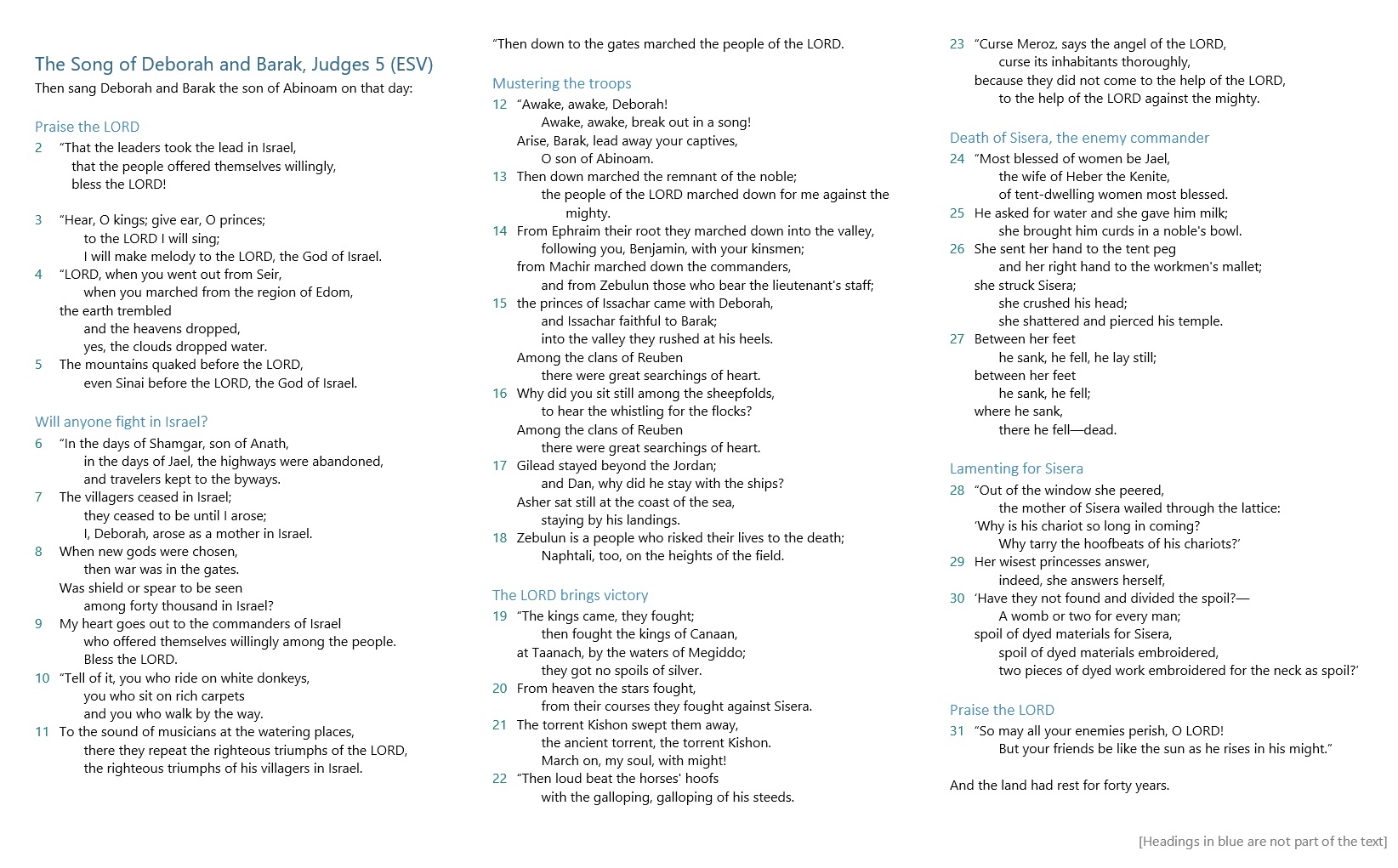In short
After Deborah and Barak are victorious over the army of the king of Canaan, they sing a song of praise. It seems like Deborah is the narrator and likely author* (v. 7), which is kind of like the story it tells.
Why it is important
The main hero is a woman (Deborah), and another woman, Jael, has a huge role in the story as well.
Also, they say this is one of the oldest parts of the Bible, possibly the oldest. Not the events, but the written record. I don’t know if that’s true, if it matters if it’s true or not, or what impact it might have. But it’s interesting nonetheless.
Characters in the poem
- Sisera, commander of the enemy’s army
- Deborah, a prophetess and judge of Israel
- Barak, commander of Israel’s forces
- Jael, the woman who kills Sisera
Side note: Jabin, the king of Canaan, is in chapter 4 but not in the poem.
The story
The events take place in Judges 4.
- Even though Canaan was conquered (four chapters ago!), now Israel is being controlled by Canaan because the LORD punished them for their evil (vs. 1-2)
- “Then the people of Israel cried out to the LORD for help” (v. 3)
- Deborah “sent and summoned Barak” to muster an army from among the tribes of Israel (v. 6)
- Barak asks Deborah to go with (v. 8)
- Deborah says, Sure, but you know how bad this will make you look, right? (v. 9)
- Deborah does tag along and goads Barak to go get ‘em (vs. 9, 14)
- The enemy is destroyed but Sisera, the commander, flees… (v. 15)
- …right into the tent of Jael, who is just so nice to him… (vs. 17-19)
- …and then drives a tent peg through his skull (v. 21)
- As a postscript, this apparently gave Israel confidence to vanquish the king of Canaan completely (v. 24)
What is in this song
A poetic retelling of the events of the story in chapter 4.
The song focuses intently on the pathetic unwillingness of much of Israel to fight against the enemy.
In contrast, the beginning and middle of the song tell of the LORD’s victory, past and present.
The final third focuses on two women – but neither is Deborah. It is about Jael (no surprise there) and the mother of Sisera, who is not mentioned in chapter 4.
And, of course, praises to God frame the song at beginning and end.
Theology and doctrine
Much discussion surrounds Deborah who is notable for being:
- Only one of two prophetesses in the Old Testament
- The only female judge
- The judge with probably the best reputation – nothing bad is said of her, and yet much is written of her
I am the last person to try to turn this into proof that women should preach or whatever progressive idea you could try to squeeze out of this.
But it sure is hard to ignore how brightly she shines in the midst of the filth around her. She is arguably the highest point in the book. I’ll let you chew on that. That’s where the Bible leaves it for us.
Footnote
* As further indication that Deborah is the main or only author of the poem, verse 1 in Hebrew apparently reads, “Then she sang, Deborah and Barak…”


No responses yet